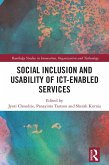The use of digital representations to aid in projects-Building Information Modeling (BIM)-is gaining traction worldwide as an effective and beneficial approach to executing projects that can reduce errors and improve project results. Author Chen-Yu Chang, PhD, explains the current state of BIM use in three distinct countries: China, the United Kingdom, and the United States. Following multiple case studies in each country, Professor Chang explores the explicit and implicit motivators that may drive BIM participation and the factors that can influence its effectiveness. The case studies offer multiple perspectives on why and how BIM-enabled projects are adopted and provide a lens for understanding BIM at varying levels. This theoretical approach gives researchers and organizations new tools and ideas to help build their own strategies to encourage BIM use and better understand its place in managing projects.
Dieser Download kann aus rechtlichen Gründen nur mit Rechnungsadresse in A, B, BG, CY, CZ, D, DK, EW, E, FIN, F, GR, HR, H, IRL, I, LT, L, LR, M, NL, PL, P, R, S, SLO, SK ausgeliefert werden.









